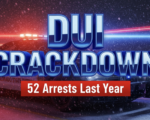The Indiana Department of Correction (DOC) has disclosed that the state spent $900,000 on the drug used in the execution of convicted murderer Joseph Corcoran. However, the details surrounding the purchase remain murky, sparking ongoing legal battles over transparency.
A Price Tag Without Context
A recently released document shows that Indiana allocated nearly a million dollars for the lethal injection drug. But beyond the hefty price, crucial information is missing. The state has yet to reveal when the purchase was made, how much of the drug was obtained, or the vendor supplying it.
The Indiana Capital Chronicle has been pressing for answers, filing a lawsuit in January to obtain more details on the spending of taxpayer money. The DOC and former Governor Eric Holcomb’s administration had previously used state laws to shield much of this information. While the law prevents disclosure of the supplier’s identity, it does not prohibit sharing financial details.
Governor Mike Braun’s administration has signaled a willingness to reconsider past secrecy. His legal team is reportedly reviewing ways to offer more transparency while staying within legal limits.

A Heavily Redacted Document
During negotiations, the Indiana Attorney General’s Office provided the Capital Chronicle with a one-page contract. Almost the entire document was blacked out, except for a single line stating: “IDOC shall pay the Contractor the sum of nine hundred thousand dollars ($900,000).”
Without additional details, it’s unclear whether this sum covered a single batch or multiple purchases. The lack of information also leaves unanswered questions about the drug’s shelf life and potency.
Comparing Costs Across States
Indiana’s spending on execution drugs appears to be significantly higher than in other states. Here’s a look at recent purchases:
| State | Year | Amount Paid | Quantity Purchased |
|---|---|---|---|
| Idaho | 2023 | $50,000 | 15 grams |
| Idaho | 2023 | $100,000 | 3 doses |
| Arizona | 2020 | $1.5 million | 1,500 vials (1g each) |
| Utah | 2024 | $200,000 | 2 doses |
| Tennessee | 2017+ | $525,000 | Unknown |
Reports indicate that a typical execution requires five grams of pentobarbital. Arizona’s records suggest that a single-gram vial costs about $1,500. Given these figures, Indiana’s $900,000 expenditure raises eyebrows about how much of the drug was actually acquired and whether the price was inflated.
Transparency Concerns Grow
Corcoran’s execution in December marked Indiana’s first use of a single-drug lethal injection method. Previously, the state had used a three-drug cocktail. Yet, officials still refused to confirm whether pentobarbital was the drug used in Corcoran’s case.
Attorneys for Corcoran and other death row inmates have been pushing the state to disclose its execution protocols. They want clarity on:
- The amount of pentobarbital in Indiana’s possession
- The drug’s expiration date and storage conditions
- Quality and sterility of the drug
The Death Penalty Information Center has reported multiple cases of botched executions linked to expired or improperly stored drugs. Without more details, concerns linger over whether Indiana’s current stockpile is safe for use.
Legislative Efforts to Increase Oversight Stall
A Republican lawmaker, Rep. Bob Morris, attempted to introduce legislation addressing execution drug regulations earlier this year. Initially, Morris proposed House Bill 1030 to abolish the death penalty altogether but later revised it to focus on regulating execution drugs and witness guidelines. However, the bill has yet to gain traction.
Meanwhile, Indiana officials continue to keep tight-lipped about their lethal injection protocols. With legal pressure mounting and public interest growing, the fight for transparency is far from over.













